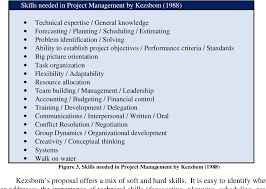
Management of human capital requires understanding and measuring the skills of your staff. These skills can be used to help you develop a compensation incentive system. This will allow your business to better align skill sets with salaries. You can avoid high turnover rates by creating a pay-for skills system. Employees will be encouraged to improve their core competencies and supported by the employer. This approach will make employees feel more valued and allow them to stay with the company longer.
Employee engagement
Engaging employees is an essential component in managing human capital. This involves giving employees meaningful feedback, and giving them a sense that they are important. It also involves providing them with a voice and the opportunity to voice their ideas and concerns. Managers should regularly communicate with staff to understand their concerns, and provide feedback.
Employee turnover is one factor that can have a significant impact on an organization's productivity. Gallup found that the cost of millennial turnover to organizations is $30.5 billion per year. Engaged employees are more satisfied with their work, and they are more likely to remain in their current job.
Performance management
Human capital performance management is a way to align an organization’s strategy with the employees' performance. It involves setting goals and objectives and ensuring that everyone works in the same direction. This involves creating and managing individual performance plans. It also includes determining compensation. Performance management also focuses on the identification and development of high-potential employees as well as key talents. This approach is applicable in many situations: from hiring and firing to evaluating quality and identifying training needs.

The best performance management system will integrate performance improvement and employee engagement and ensure that employees feel committed to learning and development. A good example of this is Microsoft's gamification program for call-center agents. The goal is for employees to have the knowledge and skills required to fulfill their role. Performance management should be integrated into the employee development program in order to achieve success.
Compensation
The right compensation can be crucial to attracting the right talent for a position. Remember that compensation is not about just cash. It's also about motivating employees. A solid compensation management system will help a company retain top talent, motivate employees, and attract new talent. The right compensation mix can help increase a company’s efficiency and revenue.
The goal of compensation management is to ensure that salaries and benefits are competitive and reflect the needs of the current workforce. This includes analyzing employee data and staying current with complex benefits administration rules. While compensation is important it is equally important that employees are paid properly and on-time.
Pay-for-performance
Pay-for-performance is a great way to motivate your employees and retain them. This model allows employees to increase their wages by meeting specific targets. This model is also a great way to hire highly-skilled people. While this type of compensation is not suitable for every company, it can encourage top performers to stay.
It is crucial to make sure that the CEO and HR department are committed to pay-for-performance when implementing it. Mid-management will more likely follow the example of top management when they are supportive of the concept.

Learning
Learning can be used as part of human resource management to maximize the potential of your employees. Whether you are hiring a new employee or promoting a current employee, there are many ways to make learning a part of your organization. Understanding industry trends and identifying the needs of your employees is one of the best ways to increase your human capital.
One way to do this is to provide training for your employees. Employees will feel more confident in their work if they have the right training. Employees who feel confident in their jobs will perform better.
FAQ
What is a consultant?
A consultant is someone who provides services for other people. It's more than just a job title. This role allows you to help others achieve their dreams. Helping others to understand their options, and then helping them make the best decisions.
Consultants can help you solve problems or overcome challenges when working on projects. They offer guidance and advice about how to implement such solutions.
A consultant should be able to answer questions about anything related to business, technology, finance, law, management, leadership, strategy, operations, customer service, human resources, etc.
Do I need legal advice?
Yes! Consultants often create contracts with clients without getting legal advice. This can lead into problems down-the-road. What happens if the client cancels the agreement prior to the consultant's completion? What happens if the consultant doesn’t meet the deadlines specified in the contract.
To avoid any problems, it's best that you consult a lawyer.
Consulting is it a job?
Consulting is not only an entry-level profession for those looking to make fast money, but it's also an excellent way to acquire valuable skills that you can apply throughout your career.
There are many opportunities for consulting, including project management, strategy, training and leadership. You could find yourself working with small start-ups and large international corporations.
You can develop your skills and gain experience in a variety of industries by consulting. This could be learning to manage people, write proposals and manage budgets, analyze data and create presentations, or conduct market research.
How can I start an LLC consulting company?
First, you must decide what your goals are as a service provider. You must then ensure you are qualified to offer those services. It may also be beneficial to look for someone who is already qualified to do what you desire and to see how they work.
Once you know what you want to provide, then you should try to figure out where your target market is. If there aren't enough of them, you may need to create them.
You will then need to decide if it is worth starting your own business, or hiring others to do it.
Another option is to get a state license. This requires a lot of paperwork and legal fees.
What is the difference?
A consultant provides advice on a topic. A consultant is able to provide solutions.
Consultants work directly for clients to help achieve their goals. Advisors advise clients indirectly via books, magazines, lectures and seminars, etc.
What should your consulting fees be?
It depends on what you are offering. If you're providing services for free, there is no reason to charge anything. However, if you are selling products or services, then you need to set prices based on value.
If you are providing low-quality services, then you don't have anything to sell. Why should anyone pay for your services?
You might be able ask for a more expensive price if your services are of high quality. People recognize the value in you offering. Also, clients who purchase multiple packages from your company may get discounts.
Statistics
- My 10 years of experience and 6-step program have helped over 20 clients boost their sales by an average of 33% in 6 months. (consultingsuccess.com)
- On average, your program increases the sales team's performance by 33%. (consultingsuccess.com)
- WHY choose me: Why your ideal client should choose you (ex: 10 years of experience and 6-week program has helped over 20 clients boost their sales by an average of 33% in 6 months). (consultingsuccess.com)
- Over 50% of consultants get their first consulting client through a referral from their network. (consultingsuccess.com)
- 67% of consultants start their consulting businesses after quitting their jobs, while 33% start while they're still at their jobs. (consultingsuccess.com)
External Links
How To
How do you find the best consultant?
First, ask yourself what kind of consultant you are looking for. Before you begin looking for a consultant, it is important to know what your expectations are. Before you start looking for a consultant, make a list. These could include professional expertise, technical skills and project management abilities, communication skills, availability, and other things. After you have outlined your requirements, you might want to ask friends and colleagues for recommendations. Ask them about their experiences with consultants and compare their recommendations to yours. If you don't have any recommendations, try doing some research online. There are many websites, such as LinkedIn, Facebook, Angie's List, Indeed, etc., where people post reviews of their previous work experiences. Use the feedback and ratings of others as a starting point to search for potential candidates. Once you have a shortlist, be sure to contact potential candidates directly to schedule an interview. In the interview, discuss your needs and ask them for their suggestions on how you can achieve them. It doesn’t matter if the person was recommended to you; it matters that they understand your business goals, and can show you how they can help.